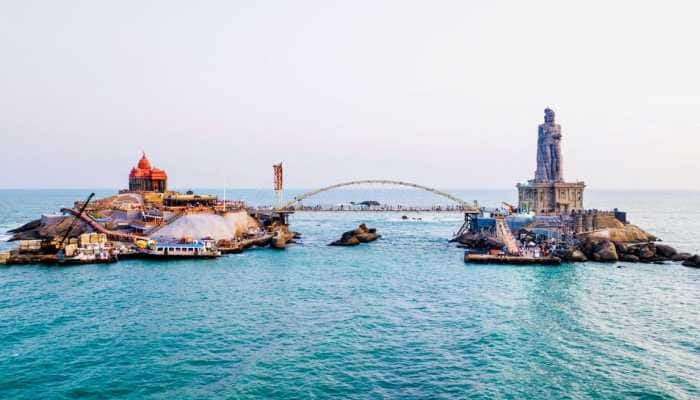Non Alignment 2.0: India and Pakistan
The paper aims to provide guidance to India’s foreign and strategic policy.
Trending Photos
)
 Shobhika Puri
A bunch of Indian think tanks recently came up with a comprehensive paper called Non Alignment 2.0 after over a year of deliberations. The objective of this paper is to provide guidance to India’s foreign and strategic policy over the next decade. This paper is a must read for anyone who wants a snapshot of India, its strengths, weaknesses, challenges facing it, opportunities lying ahead, steps that it can take to strengthen its position on the world stage and so on. This article aims to outline the strategies suggested by the experts with regards to our endearing yet threatening neighbour, Pakistan.
This paper advises the government to convince Pakistan that the pursuit of cross-border terrorism will not do it any good but only harm. A good idea but the paper fails to address the issue ‘how’? How can one convince a country that thinks India engages with it only because of its concern with cross-border terrorism, a fact corroborated by the paper itself? How can one convince a country that flexes it nuclear muscle every now and then? How can one convince a country that gave shelter to Osama bin Laden, a fact denied by them till the Abbottabad incident caught them unawares?
The paper suggests making terrorist attacks impossible in India. How? By strengthening the police, intelligence and counter-terrorism capabilities. The lesser said about our failure on these fronts, the better. And, the paper too does not do justice to the topic.
Another strategy that the paper advocates is to condemn human rights violations in places like Balochistan to eventually provide an effective tool against Pakistan’s public posturing on Jammu and Kashmir. Again, a big ‘how’? India needs to clean its own backyard before pointing fingers at others. Kashmir is a very sensitive issue and any such mistake can do it more harm than good.
The experts have suggested making India so indispensable to the people of Pakistan that the latter become stakeholders in the former’s progress. This could be by way of trade ties, water and energy supplies and the like. So far so good. However, the paper goes as far as to suggest military-to-military ties. Really? Given the state and role of the Army in Pakistan, is this really plausible?
The paper also suggests some magnanimous steps like providing a more liberal visa regime to welcome Pakistanis with open arms and minimal checks and restrictions. As much romanticised as this idea may seem, it is fraught with dangers. With our abysmal levels of security and porous borders, would not such steps add to our compounding problems? And, to suggest such hospitality even without any reciprocation from the Pakistani side, is to expect too much from a country still fresh out of the 26/11 attacks.
To be fair to the paper, it does highlight certain practical steps. Whenever there is a terrorist attack in India, all dialogue with Pakistan is stopped. A few months down the line, the dialogue is resumed from the scratch, nullifying all past efforts. This kind of an emotionally charged reaction is counter-productive to both the countries. This paper rightly suggests keeping the communication lines open, especially when such attacks happen with a clear message that India will not tolerate this.
The experts have suggested some farsighted strategies as well. They suggest that India should continue to support Afghanistan in its nation building exercise, much to the chagrin of Pakistan. Over a period of time when America would lose interest in Afghanistan, Pakistan would not be in a strong position with its coffers drying up. Then, it would be advantage India.
This paper covers all that one needs to know about the challenges we face with Pakistan and the opportunities that it presents. However, all that the paper talks about has already been said before, time and again. If the strategies outlined were public knowledge and have not helped so far, what is the guarantee that they would now? The answer lies in one keyword, ‘intent’. Everybody knows what is to be done and why but, till there is a political will at the top, nothing can succeed. No paper, no meeting, no think tank, no article, nothing. Hope the government is listening. Hope the political parties can think beyond elections and do something for the country’s future instead. Hope Pakistan too is listening. Hope the international community is listening. Hope everybody who matters is listening. Hope this paper does not end up becoming yet another intellectual exercise that could not be implemented.
(Shobhika Puri is a freelance writer)
Shobhika Puri
A bunch of Indian think tanks recently came up with a comprehensive paper called Non Alignment 2.0 after over a year of deliberations. The objective of this paper is to provide guidance to India’s foreign and strategic policy over the next decade. This paper is a must read for anyone who wants a snapshot of India, its strengths, weaknesses, challenges facing it, opportunities lying ahead, steps that it can take to strengthen its position on the world stage and so on. This article aims to outline the strategies suggested by the experts with regards to our endearing yet threatening neighbour, Pakistan.
This paper advises the government to convince Pakistan that the pursuit of cross-border terrorism will not do it any good but only harm. A good idea but the paper fails to address the issue ‘how’? How can one convince a country that thinks India engages with it only because of its concern with cross-border terrorism, a fact corroborated by the paper itself? How can one convince a country that flexes it nuclear muscle every now and then? How can one convince a country that gave shelter to Osama bin Laden, a fact denied by them till the Abbottabad incident caught them unawares?
The paper suggests making terrorist attacks impossible in India. How? By strengthening the police, intelligence and counter-terrorism capabilities. The lesser said about our failure on these fronts, the better. And, the paper too does not do justice to the topic.
Another strategy that the paper advocates is to condemn human rights violations in places like Balochistan to eventually provide an effective tool against Pakistan’s public posturing on Jammu and Kashmir. Again, a big ‘how’? India needs to clean its own backyard before pointing fingers at others. Kashmir is a very sensitive issue and any such mistake can do it more harm than good.
The experts have suggested making India so indispensable to the people of Pakistan that the latter become stakeholders in the former’s progress. This could be by way of trade ties, water and energy supplies and the like. So far so good. However, the paper goes as far as to suggest military-to-military ties. Really? Given the state and role of the Army in Pakistan, is this really plausible?
The paper also suggests some magnanimous steps like providing a more liberal visa regime to welcome Pakistanis with open arms and minimal checks and restrictions. As much romanticised as this idea may seem, it is fraught with dangers. With our abysmal levels of security and porous borders, would not such steps add to our compounding problems? And, to suggest such hospitality even without any reciprocation from the Pakistani side, is to expect too much from a country still fresh out of the 26/11 attacks.
To be fair to the paper, it does highlight certain practical steps. Whenever there is a terrorist attack in India, all dialogue with Pakistan is stopped. A few months down the line, the dialogue is resumed from the scratch, nullifying all past efforts. This kind of an emotionally charged reaction is counter-productive to both the countries. This paper rightly suggests keeping the communication lines open, especially when such attacks happen with a clear message that India will not tolerate this.
The experts have suggested some farsighted strategies as well. They suggest that India should continue to support Afghanistan in its nation building exercise, much to the chagrin of Pakistan. Over a period of time when America would lose interest in Afghanistan, Pakistan would not be in a strong position with its coffers drying up. Then, it would be advantage India.
This paper covers all that one needs to know about the challenges we face with Pakistan and the opportunities that it presents. However, all that the paper talks about has already been said before, time and again. If the strategies outlined were public knowledge and have not helped so far, what is the guarantee that they would now? The answer lies in one keyword, ‘intent’. Everybody knows what is to be done and why but, till there is a political will at the top, nothing can succeed. No paper, no meeting, no think tank, no article, nothing. Hope the government is listening. Hope the political parties can think beyond elections and do something for the country’s future instead. Hope Pakistan too is listening. Hope the international community is listening. Hope everybody who matters is listening. Hope this paper does not end up becoming yet another intellectual exercise that could not be implemented.
(Shobhika Puri is a freelance writer)
Stay informed on all the latest news, real-time breaking news updates, and follow all the important headlines in india news and world News on Zee News.
Advertisement
Live Tv
Advertisement







)
)
)
)
)
)
)
)
)
)
